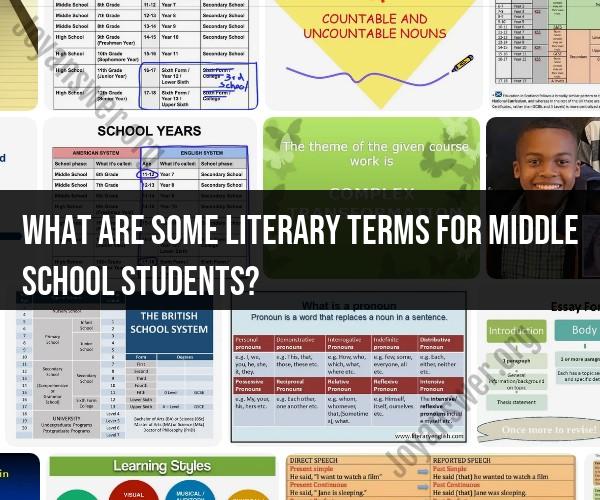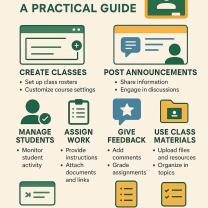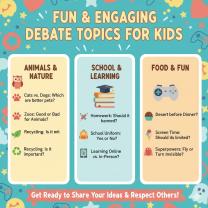What are some literary terms for middle school students?
Building a strong vocabulary of literary terms can greatly enhance middle school students' understanding and appreciation of literature. Here are some important literary terms that middle school students can learn:
Plot: The sequence of events in a story, including the exposition (beginning), rising action, climax, falling action, and resolution (end).
Character: A person, animal, or thing in a story. Characters can be protagonists (heroes) or antagonists (villains).
Setting: The time and place where a story occurs. It helps create the story's atmosphere and mood.
Conflict: The struggle or problem that drives the plot. It can be internal (within a character) or external (between characters or forces).
Theme: The central message or lesson that the author wants to convey through the story. It's the "big idea" of the text.
Point of View: The perspective from which a story is told. First-person uses "I," second-person uses "you," and third-person uses "he," "she," or "they."
Foreshadowing: Hints or clues in a story that suggest future events or outcomes.
Symbolism: The use of symbols (objects, characters, or elements) to represent deeper meanings or ideas in a story.
Irony: A contrast between what is expected and what actually happens. Types of irony include situational, verbal, and dramatic.
Mood: The emotional atmosphere or feeling created by a story. It's often described using adjectives like "mysterious," "tense," or "joyful."
Tone: The author's attitude toward the subject matter or characters in a story. It can be serious, humorous, sarcastic, etc.
Imagery: Descriptive language that appeals to the senses (sight, sound, taste, touch, smell) to create vivid mental pictures for the reader.
Metaphor: A figure of speech that directly compares two unlike things by saying one is the other (e.g., "Her smile was a ray of sunshine").
Simile: A figure of speech that compares two unlike things using "like" or "as" (e.g., "He was as brave as a lion").
Alliteration: The repetition of consonant sounds at the beginning of words in a sentence or phrase.
Onomatopoeia: Words that imitate the sound they represent (e.g., "buzz," "bang," "sizzle").
Personification: Giving human qualities or characteristics to non-human things or animals.
Hyperbole: Exaggerated statements or claims not meant to be taken literally, used for emphasis or effect.
Protagonist: The main character in a story who faces the central conflict.
Antagonist: The character or force that opposes the protagonist.
Encourage students to read and analyze literature to identify these terms in context. It can be helpful to provide examples from texts they are currently reading or studying to illustrate how these terms are used. This will help them develop a deeper understanding of literary concepts and improve their reading comprehension.













